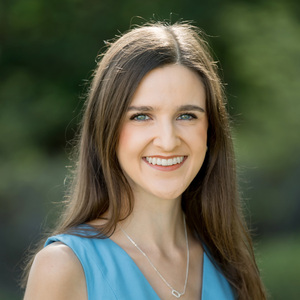Forty-nine Biola University students recently took on the challenge of talking politics with a stranger to build skills around civil discourse. Partnering with the nonpartisan nonprofit Unify America and 104 other universities across the country, Biola’s Dr. Tim Muehlhoff, a professor of communication and co-director of Biola’s Winsome Conviction project, and Dr. Mike Ahn, dean of spiritual development and campus pastor at Biola, led Biola students through the 5th biannual Unify Challenge College Bowl.
“As a communication professor, I see the impact of today's argument culture. Students are afraid to share their thoughts, or have difficult conversations,” said Muehlhoff. “Heading into the Unify America zoom conversations, they were nervous and not sure what would happen.”
In the Unify Challenge College Bowl, Unify America pairs up two college students — total strangers from different schools that have different political leanings, geographical locations, or backgrounds — to enter into a one-on-one guided video conversation to talk about pressing issues and goals for the country.
“After the conversations, the class was electric with their stories of how they connected with diverse people, and while they disagreed, they equally found many points of connection and common ground. What a powerful alternative to what we regularly see on social media or the national news. Engaging and civil conversations can still happen,” said Muehlhoff.
With Ahn, Muehlhoff was able to use survey’s conducted by Biola’s Winsome Conviction Project on civility as a starting point for conversations with students about the way they see incivility impacting their relationships. There was a consensus amongst the students they spoke to that incivility is a pressing issue they want to address in their community.
Students that they spoke to also attended the Winsome Conviction talk where students were able to learn about the organizations at the College Bowl, such as Unify America and Cru, find a community centered in Christ and be exposed to ways to de-escalate and facilitate difficult conversations.
“We set out to build a program that could offer low-risk, but high-impact experiential learning, while also cultivating the leadership skills that college students — and our nation — need for the future,” explains Michelle Sobel, President of Unify America, whose organization is leveraging technology and games to reduce political polarization and teach collaborative problem-solving skills.
The program began in October 2021 with 10 schools, and now almost 8,000 students have participated, representing a wide variety of learners from students at four-year public institutions to community colleges and military academies. Since its launch, the program has grown 10 times in two years. This year, thousands of student participants across 40 states joined the virtual Unify Challenge to share perspectives across differences and strengthen their civic muscles over the course of seven nights.
“This conversation one hundred percent made me more open to conversing with people
with diverse perspectives. It was so encouraging to see us agree on many more things than what we disagreed on,” said Faith Lee, junior communication studies major with an emphasis in public relations and strategic communication.
After the event, Unify America reported that 68% of student participants said the Unify Challenge helped them consider new perspectives they hadn’t considered before and
72% said they wish they had more opportunities to talk openly about these topics.
Among participants from Biola, 57% say they feel more hopeful about the future of democracy after participating, and 72% said they were more likely to share their point of view on political or current events in class or on campus. You can watch additional student reflections in this video.
Learn more about the Winsome Conviction Project and future events.
Written by Sarah Dougher, media relations specialist. For more information, please contact media.relations@biola.edu.
 Biola University
Biola University
.jpg)
.jpg)